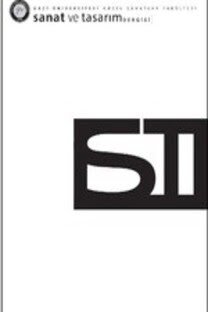Grafik Tasarımın Bilgilendirme ve Yönlendirme Tasarımındaki Rolü ve Londra-Eskişehir Örnekleri Üzerinden Bir İnceleme
Kentler büyüyen, gelişen ve giderek karmaşıklaşan organik yapılardır ve kentlerde yaşam kalitesini korumak, bir sistem kurma zorunluluğunu ve tasarımı beraberinde getirir. Özellikle hızlı nüfus artışının ve göçün yoğun olduğu metropollerde, toplu taşıma, günlük hayatın vazgeçilmez unsurlarındandır. Toplu taşıma araçları, raylı sistemler, otobüsler, trenler ve bunlara bağlı olarak inşa edilen geçitler, tüneller, istasyonlar ve yolların hayata geçirilmesi sürecinde mühendislik bilgisi kadar mimarlık, tasarım ve grafik tasarım bilgisi de gereklidir. Grafik tasarım, toplu taşıma araçlarının kullanımında bilgiyi kısa sürede iletir ve anlaşılır kılar. Evrensel bir dil olan grafik dil, ulaşım sistemlerini kullanma kapasitesi olan herkesi kapsar ve kullanımına fırsat verir. Bu makale, Londra ve Eskişehir kentleri örneği ele alınarak ve bu kentlerdeki metro ve tramvaylarda kullanılan kurum kimliği ve yönlendirme tasarımlarına odaklanarak toplu taşımada grafik tasarımın yerini ve önemini vurgulamayı amaçlamaktadır.
Anahtar Kelimeler:
Bilgilendirme tasarımı, yönlendirme tasarımı, grafik tasarım, toplu taşıma
The Role of Graphic Design in Information and Wayshowing Design and Investigation Through London and Eskisehir
Cities are organic structures that tend to grow more complicated; maintaing the quality of life in cities requires designing systems. Rapid growth of population and received migration in metropoleis, makes public transportation an essential part of daily life. Public transportation vehicles, rail systems, buses, trains and passages, tunnels, stations and roads being built in correspondance with the systems, require architecture, design and graphic design as much as it requires physical construction and engineering. Graphic design helps information to be transmitted rapidly and accurately. Graphic language, being a universal language, encompasses most transportation users and allow the systems to be used by all. This article aims to examine the role of graphic design in public trasportation sistems by focusing on London and Eskişehir examples.
Keywords:
Information design wayshowing design, wayfinding, graphic design, public trans- portation.,
___
- BAER, Kim (2008). Information Design Workbook. Massachusetts: Rockport Publishers.
- COTTON, Michelle (2010). Design Research Unit 1942-72. Köln: Koenig Books.
- GALINDO, Michelle (2012). Signage Design. Berlin: Braun Publishing.
- GARLAND, Ken (2008). Mr. Beck’s Underground Map: A History. London: Capital Transport.
- GIBSON, David (2009). The Wayfinding Book: Information Design for Public Places. New York: Princeton Architectural Press.
- GREEN, Oliver (2013). Frank Pick’s London: Art, Design and the Modern City. Londra: V&A Publishing. HOLLIS, Richard (1996). Graphic Design: A Concise History. Londra: Thames and Hudson.
- HYLAND, Angus ve BATEMAN, Steven (2011). Symbol: The Reference Guide to Abstract and Figurative Trademarks. Londra: Laurence King Publishing.
- LAWRENCE, David (2013). A Logo for London: The London Transport Bar and Circle. Londra: Laurence King. MOLLERUP, Per (2005). Wayshowing: A Guide to Environmental Signage Principles & Practices. Baden: Lars Müller.
- OVENDEN, Mark (2013). London Underground by Design. Londra: Penguin Books.
- UEBELE, Andreas (2007). Signage Systems + Information Graphics. Londra: Thames & Hudson.
- ISSN: 1308-2264
- Yayın Aralığı: Yılda 2 Sayı
- Başlangıç: 2015
- Yayıncı: Ankara Hacı Bayram Veli Üniversitesi
Sayıdaki Diğer Makaleler
Magdalena Abakanowicz ve "Agora" Adlı Yerleştirmesi
Hümanist Yazının Tarihsel Kimliği
Günümüz Dokuma Kumaş Tasarımında Deneysel Yüzey Araştırmaları
Çağdaş Sanat Eserlerinde Toplumsal Cinsiyet Sorgulamaları
Melike TAŞÇIOĞLU, Dilek ERDOĞAN AYDIN
Nâyi Osman Dede'nin Mevlevi Ayinlerinde Makam ve Usul Yapıları
